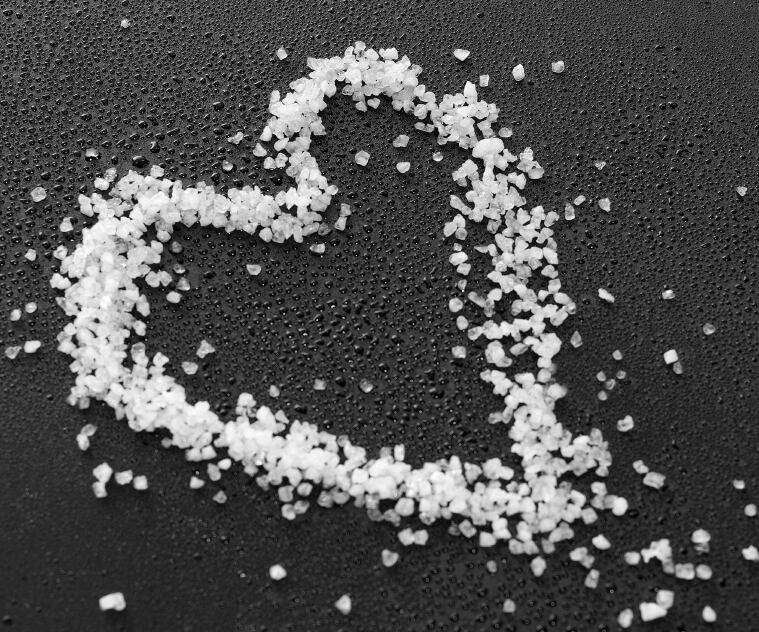A study published in the Journal Appetite, and presented at the 20th International Congress of Nutrition this week in Spain, found that while there were many common ideas about salt consumption and reduction among international consumers, some varied significantly.
The researchers said it would be crucial for manufacturers to have an understanding of salt intake behaviours in each market if salt reduction efforts on a global scale are to be effective.
“Strategies to reduce salt intake must raise interest in engaging in salt reduction through improving understanding of intake levels and dietary sources of salt,” they said.
“Moreover, while some aspects of salt reduction can be globally implemented, local tailoring is required to match level of interest in salt reduction.”
When developing salt reduction strategies, they said the state of change in each country must be understood – are consumers already open to change or do they first need to be educated and engaged?
A large slice of global population ‘not interested’ in salt reduction

While salt reduction was considered healthy and important by most participants, over one-third were not interested in salt reduction.
“This highlights that interventions need to take into account which stage of change the majority of the country’s population is in, and adapt strategies accordingly, whether to focus on increasing awareness, or motivation,” the researchers wrote.
However, there was a portion (16%) that said they were interested in making changes in the next six months.
China and Brazil were most open to change – 83% in China and 81% in Brazil either wanted or were active in changing their salt intake. In contrast, participants in Germany/Austria had the least interest in change – with 52% stating they had no intentions to change dietary habits in the next six months.
Misperceptions – a global issue
One international similarity across the globe was that consumers from every country had a misperception of their own salt intake, the main sources of intake in the diet and about what the current recommendations were.

“There were pervasive misperceptions surrounding the main sources of salt in the diet of the general population. Whereas on average most participants thought that the majority of salt in the diet comes from salt added during cooking, based on the intake data processed food was on average the highest contributor of salt to the diet,” the researchers said.
Knowledge on salt intake recommendations was also generally low. However, the highest level of understanding was observed in China where 34% of the population knew the recommendations. US participants were mostly unaware of recommendations.
“Further education on salt intake recommendations, and main sources of salt intake (particularly those that are hidden sources), is warranted,” the researchers said.
Who is responsible for salt intake?
Participants were aware of the role manufacturers played in their salt intake, but had less focus on the role governments and international organisations played.
Most participants embraced the idea that they were most responsible for their own salt intake – a “noteworthy finding”, the researchers said, as it holds promise for consumers adopting change.
Participants also flagged food manufacturers, restaurants, fast food chains, caterers, supermarkets, local shops, family and friends as others responsible.

Take heed: What a consumer wants…
“Participants had clear ideas on what, from whom and how they wanted to learn about the importance of salt reduction, and advantage should be taken of these insights to ensure that people are motivated to pay attention to the communications,” the researchers said.
Most said they wanted to know more about why salt was bad for them and what the main sources in the diet are.
Just over a third (35%) said they would like to hear this from the medical community and 22% said they wanted to know this from food packaging labels.
China, a country that considered governments to hold responsibility in salt consumption, wanted to hear more from governmental organisations.
Television, online social websites like blogs and discussion groups and newspapers were the preferred mediums of communication across all countries.
The global salt research
An online sample of 6,987 aged 18-65 across the globe – from Germany, Austria, United States, Hungary, India, China, South Africa and Brazil – completed a 15 minute web-based questionnaire during April to May, 2012.
People who had experienced a major health event like a heart attack, stroke, cancer or kidney disease were not able to take part due to their differing reasons for changing their nutrition behaviour.
Source: Journal Appetite
Published online ahead of print, doi: 10.1016/j.appet.2013.07.003
"Barriers for progress in salt reduction in the general population. An international study."
Authors: RS. Newson et al.
